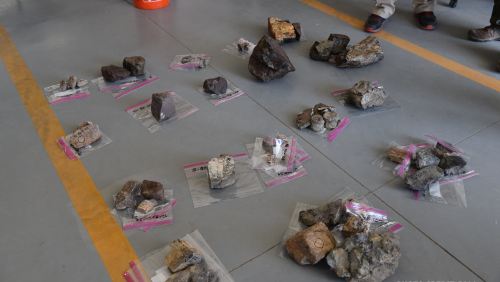The U.S. Attorney’s Office, District of Utah released a press release on Thursday announcing they will prosecute four people with 13 count indictment charges for allegedly purchasing and selling over $1 million dollars in paleontological resources. Between March 2018 and continuing until at least March 2023, the defendants allegedly purchased, transported and exported dinosaur bones from federal and state land in Utah. The defendants further illegally conspired by knowingly concealing and retaining stolen property of the United States. They exported the dinosaur bones to China by mislabeling the dinosaur bones and deflating their value to avoid detection by federal agents. “By removing and processing these dinosaur bones to make consumer products for profit, tens of thousands of pounds of dinosaur bones have lost virtually all scientific value, leaving future generations unable to experience the science and wonder of these bones on Federal land,” said U.S. Attorney Trina A. Higgins. “The United States Attorney’s Office and our law enforcement partners are dedicated to protecting paleontological resources throughout the State of Utah. We will hold accountable anyone who seeks to engage in similar criminal conduct.” The BLM does allow casual collecting of some fossils without a permit and many come to the Uintah Basin for this very purpose, so what do fossil hunters need to know? The Paleontological Resources Preservation Act of 2009 defines Casual Collecting in Section 6301(1) as “… the collecting of a reasonable amount of common invertebrate and plant paleontological resources for non-commercial personal use, either by surface collection or the use of non-powered hand tools resulting in only negligible disturbance to the Earth’s surface and other resources.” And in case it wasn’t clear, this also means it is prohibited to sell these common fossils. Permits are required for the collection of paleontological resources that would be of interest to qualified researchers and paleontological resources collected under a permit still remain the property of the United States. Questions can be directed to the BLM.




